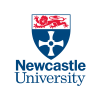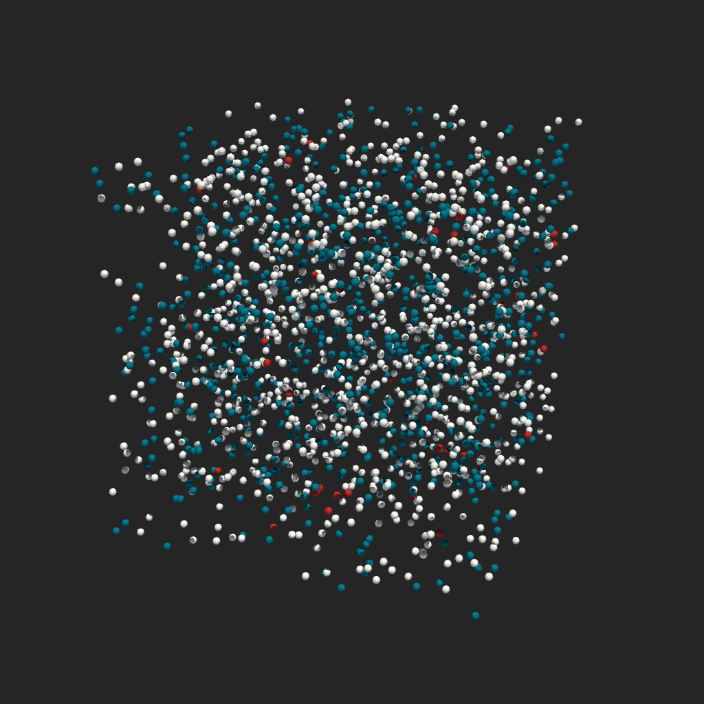BioDynaMo
BioDynaMo
Project goal
We are aiming to create a platform through which life scientists can easily create, run and visualise three-dimensional biological simulations. Built on top of the latest computing technologies, the BioDynaMo platform will enable users to perform simulations of previously unachievable scale and complexity, making it possible to tackle challenging scientific research questions.
Collaborators
.png)

Project background
Within the life-sciences community, computer simulation is being used more and more to model increasingly complex biological systems. Although many specialised software tools exist, establishing a high-performance, general-purpose platform would be a major step forward. CERN is therefore contributing its deep knowledge in large-scale computing to this collaboration, supported by Intel. Together, we are working to develop a unique platform. This project is co-financed by the CERN budget for knowledge transfer to medical applications.
Recent progress
In 2020, we generalised the simulation engine to make it applicable to other application areas beyond cell-based simulation. We used these improvements to implement a simple agent-based SIR model that simulates the spread of infectious diseases. Based on the results of this work, CERN and the University of Geneva started collaborating on a more detailed model for investigating realistic viral spread between individuals. For this purpose, BioDynaMo has been coupled with a fluid-mechanic simulation framework to simulate the precise spread of aerosols and droplets, in addition to agents' behaviour.
Furthermore, we continued our work to improve the performance and usability of BioDynaMo. We completely redesigned the visualisation component and achieved a speedup of up to two orders of magnitude. CERN technology (the ROOT framework) played a central role in this improvement.
Lastly, as part of the CERN openlab summer-student programme, we launched BioDynaMo Notebooks: an interactive web application for rapidly prototyping simulations. BioDynaMo Notebooks are powered by ROOT’s fast C++ interpreter and enables researchers to use BioDynaMo through the well-known Jupyter interface. Visit https://biodynamo.org/tutorials/ to try it.
Next steps
Publications
- L. Breitwieser, BioDynaMo: A New Platform for Large-Scale Biological Simulation (Master’s thesis), Graz University of Technology, Austria, 2016. cern.ch/go/z67t
- L. Breitwieser, R. Bauer, A. Di Meglio, L. Johard, M. Kaiser, M. Manca, M. Mazzara, F. Rademakers, M. Talanov, The BioDynaMo project: Creating a platform for large-scale reproducible biological simulations. CEUR Workshop Proceedings, 2016. cern.ch/go/Xv8l
- R. Bauer, L. Breitwieser, A. Di Meglio, L. Johard, M. Kaiser, M. Manca, M. Mazzara, F. Rademakers, M. Talanov, A. D. Tchitchigin, The BioDynaMo project: experience report. In Advanced Research on Biologically Inspired Cognitive Architectures (pp. 117-125). IGI Global, 2017. cern.ch/go/dp77
- A. Hesam, Faster than the Speed of Life: Accelerating Developmental Biology Simulations with GPUs and FPGAs (Master’s thesis), Delft University of Technology, Netherlands, 2018. cern.ch/go/f9v6
- J. de Montigny, A. Iosif, L. Breitwieser, M. Manca, R. Bauer, V. Vavourakis, An in silico hybrid continuum-/agent-based procedure to modelling cancer development: interrogating the interplay amongst glioma invasion, vascularity and necrosis. Methods, 2020. cern.ch/go/6vrm
- L. Breitwieser et al., BioDynaMo: a modular platform for high-performance agent-based simulation. Accepted in Bioinformatics, 2021. cern.ch/go/sBQ7
Presentations
- K. Kanellis, Scaling a biological simulation platform to the cloud (15 August), Presented at CERN openlab summer students’ lightning talks, Geneva, 2017. cern.ch/go/d9nV
- L. Breitwieser, BioDynaMo (21 September), Presented at CERN openlab Open Day, Geneva, 2017. cern.ch/go/lNP9
- L. Breitwieser & A. Hesam, BioDynaMo: Biological simulation in the cloud (1 December), Presented at CERN IT technical forum, Geneva, 2017. cern.ch/go/m9Kw
- A. Hesam, Biodynamo project status and plans (11 January). Presented at CERN openlab Technical Workshop, Geneva, 2018. cern.ch/go/F8Cl
- L. Breitwieser, BioDynaMo (1 February). Presented at University Hospital of Geneva Café de l'Innovation, Geneva, 2018.
- L. Breitwieser, The Anticipated Challenges of Running Biomedical Simulations in the Cloud (12 February). Presented at Early Career Researchers in Medical Applications @ CERN, Geneva, 2018. cern.ch/go/spc8
- N. Nguyen, Distributed BioDynaMo (16 August). Presented at CERN openlab summer students' lightning talks, Geneva, 2018.
- A. Hesam, Faster than the Speed of Life: Accelerating Developmental Biology Simulations with GPUs and FPGAs (31 August). Master’s thesis defense, Delft, 2018. cern.ch/go/f9v6
- L. Breitwieser, The BioDynaMo Project: towards a platform for large-scale biological simulation (17 September). Presented at DIANA meeting, Geneva, 2018. cern.ch/go/kJv7
- L. Breitwieser, BioDynaMo (23 January). Presented at CERN openlab workshop, Geneva, 2019. cern.ch/go/7RlF
- R. Bauer, Computational modelling and simulation of biophysical dynamics in medicine (7 June). Presented at Big Data in Medicine: Challenges and Opportunities, Geneva, 2019. cern.ch/go/xf9F
- F. Rademakers, BioDynaMo (20 June). Presented at Hôpitaux Universitaires de Genève, Geneva, 2019.
- J. L. Jennings, Computational Modelling of cryopreservation using the BioDynaMo software package CryoDynaMo (22 July). Presented at the Society for Cryobiology Conference, San Diego, 2019.
- J. de Montigny, Computational modelling of retinal ganglion cell development (July). Presented at UK Neural Computation, Nottingham, 2019.
- G. De Toni, Improvements on BioDynaMo Build System (13 August). Presented at the CERN openlab summer student lightning talk session, Geneva, 2019. cern.ch/go/xt68
- G. De Toni, Improvements on BioDynaMo Build System (13 August). Presented at the CERN openlab summer student lightning talk session, Geneva, 2019. cern.ch/go/xt68
- L. Breitwieser, BioDynaMo Project Update (26 September). Presented at CERN Medical Application Project Forum, Geneva, 2019.
- A. Hesam, Simulation Master Class (26 September). Presented at CERN's Dutch Language Teachers Programme, Geneva, 2019. cern.ch/go/hKL7
- A. Hesam, Simulation Master Class (11 October). Presented at CERN's Dutch Language Students Programme (NVV Profielwerkstukreis), Geneva, 2019.
- L. Breitwieser, A. Hesam, The BioDynaMo Project (21 October). Presented at EmLife Meeting, Geneva, 2019.
- L. Breitwieser, The BioDynaMo Software Part I (2 December). Presented at the BioDynaMo Collaboration Meeting, Zurich, 2019.
- A. Hesam, The BioDynaMo Software Part II (2 December). Presented at the BioDynaMo Collaboration Meeting, Zurich, 2019.
- R. Bauer, BioDynaMo: A platform for computational models and simulations of biological systems, Presented at CERN Knowledge Exchange Event, Daresbury, 2019.
- L. Breitwieser, A. S. Hesam, The BioDynaMo Project (23 January). Presented at CERN openlab Technical Workshop, Geneva, 2020.

